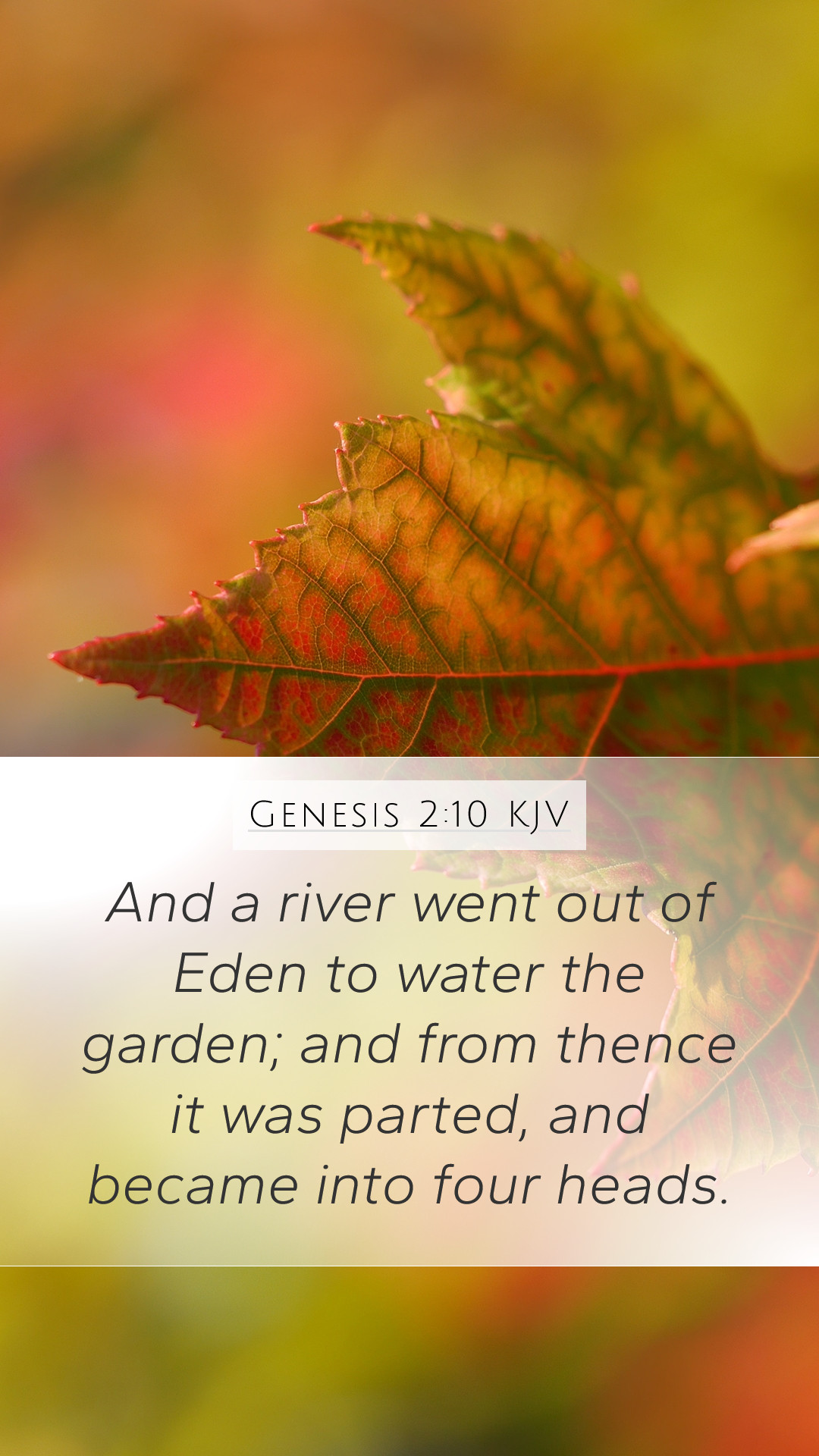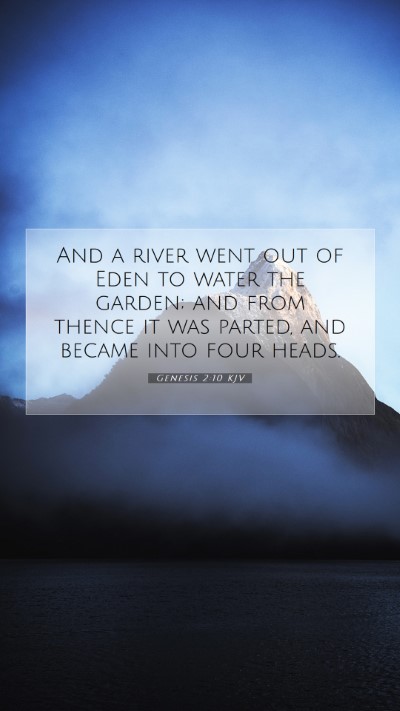Understanding Genesis 2:10
Genesis 2:10 states, "And a river went out of Eden to water the garden; and from thence it was parted, and became into four heads." This verse introduces a vital aspect of the Garden of Eden, emphasizing both physical sustenance and spiritual symbolism. Below is a compilation of insights drawn from esteemed public domain commentaries including those by Matthew Henry, Albert Barnes, and Adam Clarke.
Summary of Genesis 2:10
This scripture highlights the natural provision present in the Garden of Eden, with a river that nourishes the land. The river's four heads symbolize abundance and the spread of life.
1. The Nature of the River
Public domain commentaries emphasize the importance of the river as a source of life. According to Matthew Henry, the river signifies not only physical nourishment but also represents the spiritual sustenance that flows from God to humanity. The imagery of the river can also serve as a metaphor for divine grace flowing into the lives of believers.
2. The Function of Water
Albert Barnes notes the necessity of water for any garden or cultivated land. In the biblical landscape, water is foundational for life, representing refreshment and fertility. This concept resonates with the broader theme found throughout Scripture where water is indicative of God’s provision and life-giving nature.
3. The Division of the River
The division of the river into four heads holds rich theological meaning. Adam Clarke elaborates that the number four often symbolizes completeness and universality in Scripture. Each head may represent the different regions that the river nourished, indicating that God’s blessings and provisions extend to all corners of the earth and all nations. This anticipates the further biblical theme of salvation available to all humanity.
4. The Garden of Eden as a Symbol
In its ideal form, the Garden epitomizes harmony, peace, and the perfect state of existence as intended by God. The river not only sustains life within Eden but also hints at the larger, redemptive plan of God to restore life through Christ. This ties into the overall narrative of Scripture where the river of life is a recurring motif, culminating in passages like Revelation 22:1.
Interpretation and Applications
This verse transcends a mere geographical account; it invites readers to reflect on the spiritual truths it conveys. Below are some interpretations and applications drawn from various commentaries:
- Spiritual Nourishment: Just as the river watered the Garden, believers are reminded to seek spiritual nourishment from God’s Word and presence.
- Faith and Abundance: The four-headed river reflects the abundance of grace and provision that God offers, encouraging believers to trust in His overflowing blessings.
- Outreach of God's Blessings: The themes of the river's flow can symbolize how God's blessings should flow from believers to others, promoting outreach and sharing of the Gospel.
- Interconnectedness of Creation: The river serves as a reminder of the interconnected nature of God’s creation, an essential principle for Bible study groups emphasizing environmental stewardship.
Related Bible Cross References
- Revelation 22:1 - The river of life depicted in the New Jerusalem.
- Psalms 1:3 - The tree planted by the waters symbolizes prosperity.
- Isaiah 58:11 - Promises of nourishment and satisfaction from the Lord.
Conclusion
Genesis 2:10, more than detailing the geography of Eden, illustrates the foundational principles of biblical nourishment and divine provision. Through careful Bible verse interpretations and understanding Scripture, individuals can glean insights that not only enrich their Bible study insights but also enhance their relationship with God.
By exploring the depths of such verses, believers can apply their learnings to daily life, ensuring that God’s blessings manifest not just for their benefit but to the world around them.


